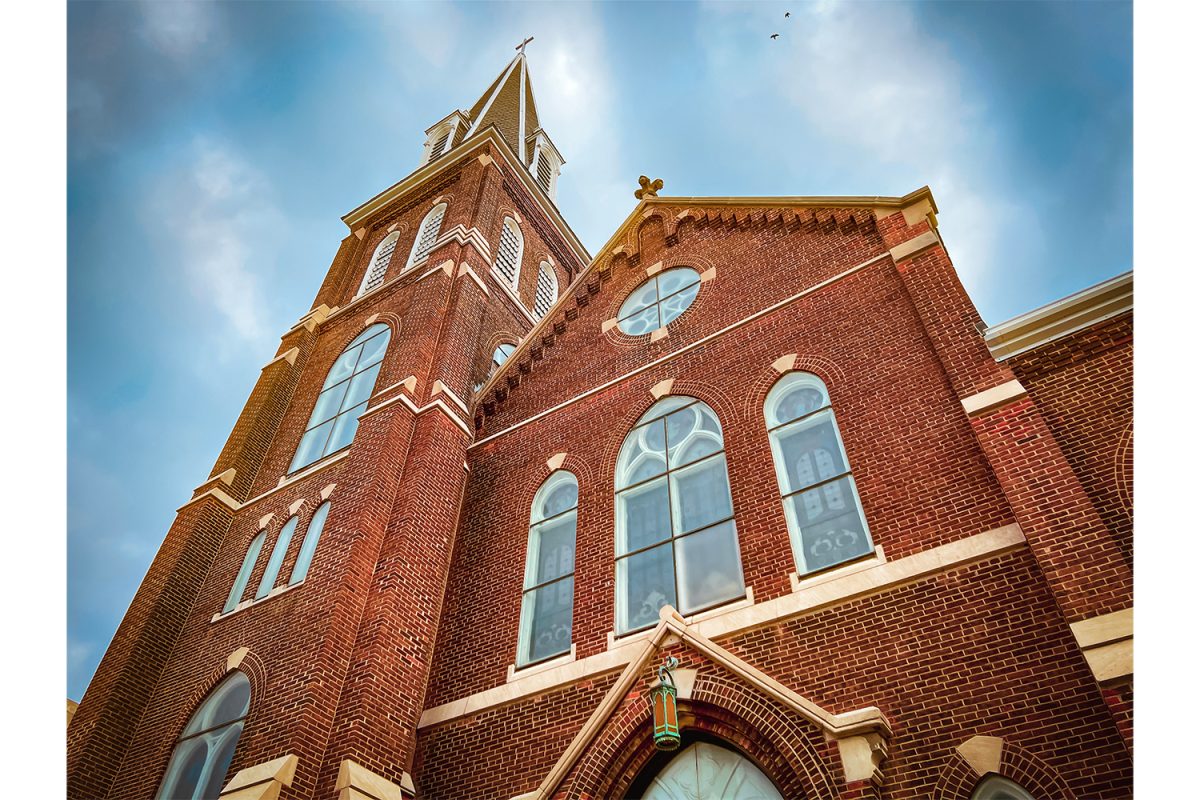The Black American community is one of the most spiritual demographics in the nation, with Christianity being one of the most practiced religions. According to the Pew Research Center, 97 percent of Black Americans believe in God or a higher power.
However, many Black Christians do not practice in traditionally white evangelical spaces.
Black Americans often worship in congregations that reflect their skin color for a multitude of reasons. Specifically, because white churches have historically manipulated the word of God to oppress racial minorities.
At the height of the slave trade, plantation owners repeated a phrase from Ephesians 6:5: “Slaves, be obedient to your human masters with fear and trembling, in sincerity of heart, as to Christ.”
Similar verses were taken out of context and used in sermons across the country to keep Black Americans docile during the daily torture they endured.
The origins of the Southern Baptist Convention, also known as the SBC, also exemplify racial oppression, permeating a religion of inclusivity. The SBC was founded in 1845 to expel anti-slavery sentiments held by Northern Baptists. Although the SBC later renounced this stance, the ripple effects are still felt today.
Eighty-five percent of Southern Baptists are white. Only six percent are Black.
The exodus of Black Christians from white evangelical churches was accelerated by the 2016 election of former President Donald Trump.
Millions of Black Christians were confronted by white congregants who celebrated the inauguration of a man who demanded the execution of the Central Park 5 — a group of five young Black teenagers, ages 14 to 16, wrongfully accused of rape.
Trump also disparaged former NFL player Colin Kaepernick for protesting police brutality, calling him a “son of a b****,” while simultaneously referring to white supremacists in Charlottesville, Virginia, as “very fine people.”
How could Black Christians not question if the people who called them “children of God” even saw them as human?
Then, the public execution of George Floyd in 2020 permanently and violently stained American history. Amid the constant news of Breonna Taylor, Ahmaud Arbery, and countless other victims of racism, historically white churches remained silent.
This was the nail in the coffin for the majority of the Black spiritual community.
As a Black Christian, witnessing the white evangelical spaces blindly turn on my community during this
time pained me.
However, I believe there is power in the church. Sharing my perspective does not need to meet the prerequisite of sharing my skin color.
I am a parishioner at the Newman Catholic Student Center in downtown Iowa City — a predominately white Catholic church that serves a large collegiate student population. I feel it is a place where I can practice my faith while being seen as a person by both parishioners and clergy. I have been welcomed to Bible studies, asked to read scripture at Mass, and am always greeted with a friendly face.
Father Jeff Belger, the priest director of the Newman Center since 2017, takes pride in the diverse community the center accommodates.
“The university brings people from all over and has given way to a great community of Nigerians, Kenyans, and Congolese,” Belger said.
He also noted the Fellowship of Catholic University Students, also known as FOCUS, as a driver of diversity for the Newman Center by drawing students from various backgrounds.
When asked how he addresses the racial issues that plague our nation, Belger said, “I preach from the readings, so any news that lends itself to the readings is worked into the homily.”
It’s great to preach about issues when the readings make it easier. However, in my personal experience, many priests I have interacted with in the past would use this same vernacular to appear supportive while never truly addressing the issues impacting marginalized communities.
I am by no means accusing the Newman Center and its clergy of the same action. If that were the case, I would not worship there at all. I simply ask that churches make a deliberate effort to seek out the teachings of God for underrepresented groups of people at all times, instead of just acknowledging issues when they arise in breaking news moments.
Black Christians might feel more comfortable visiting predominately white worship spaces if church staff and congregants addressed issues that impact all members, whether they be related to racism or topics like abortion. Spaces like the Newman Center should continue speaking on issues critical to all races, especially during this polarizing election year.
White worship spaces should actively seek a more diverse congregation. Making a concerted effort to include people of all nationalities and backgrounds will only widen the share of perspectives held by congregants.
My biggest piece of advice? Do not become complacent with the diversity that is present. Emphasize inclusivity. Churches should not only feel welcoming to Black Christians but be built for them.
For spaces that remain silent, I implore you to start speaking out today. In a divided nation, religion must be an agent of positive change rather than a misguided catalyst for harmful polarization.



